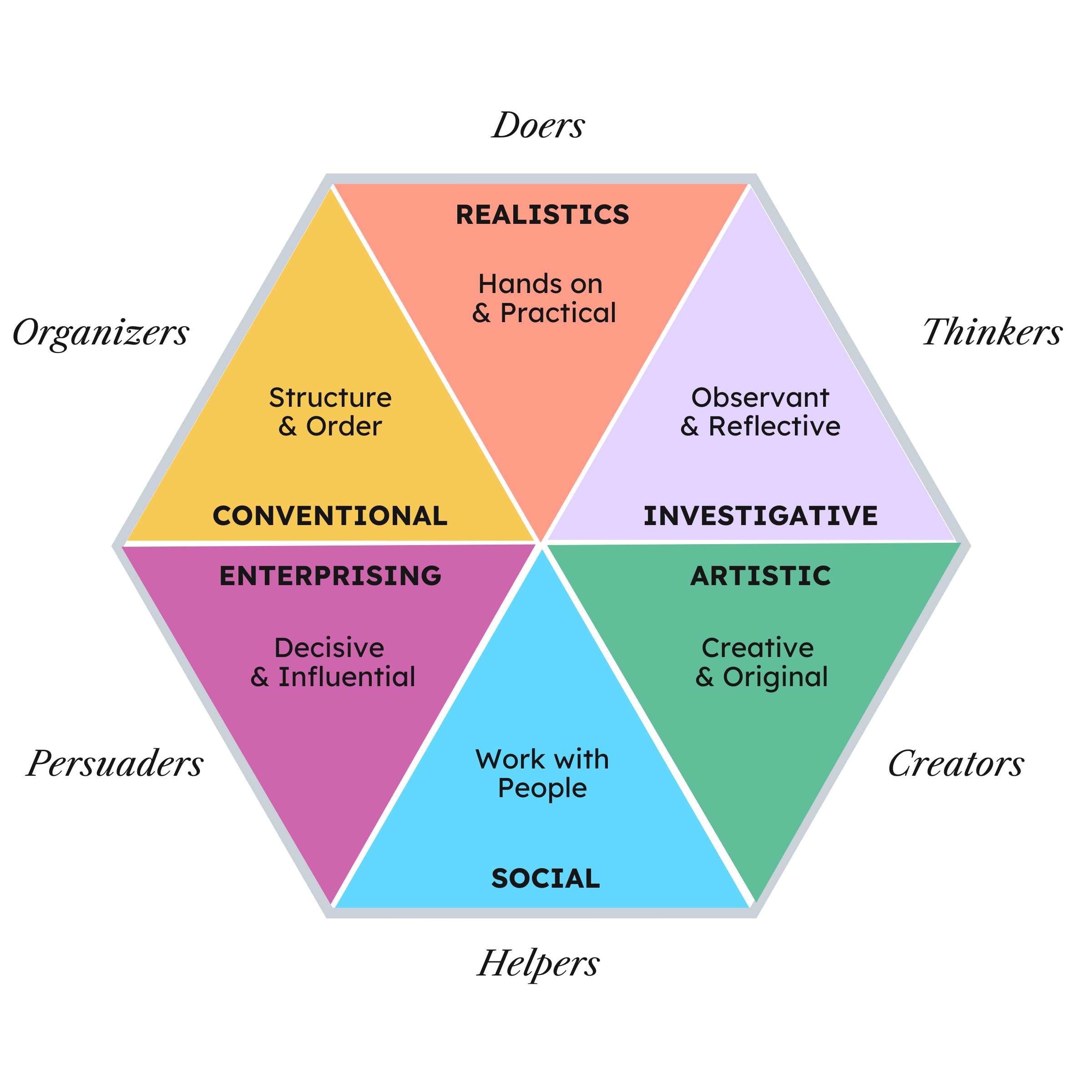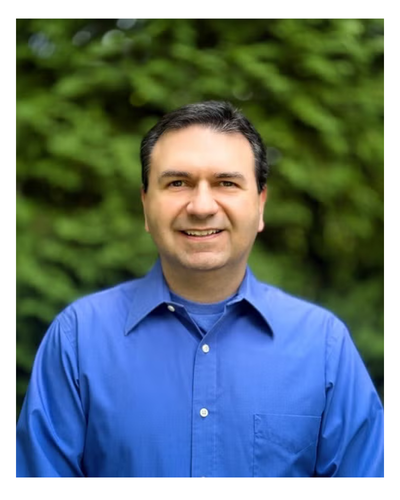
Choosing a PhD in Counselor Education: Is It the Right Fit for You?

Choosing a PhD in Counselor Education: Is It the Right Fit for You?
If you’ve read the rest of the posts in our blog series on Counselor Education & Supervision, you’ve likely asked yourself big-picture questions about your career, your purpose, and your impact. You’ve explored why counselor education matters, when the timing is right, what you can do with a PhD, how your experience translates into teaching, and where leadership can take you.
Now comes the most personal question of all: Is this path right for me?
This final post is meant to help you answer this question by guiding you to query, reflect, and clarify your thinking. If you’re still reading, chances are you’re more ready than you think.
Are You a Natural Fit for the PhD in Counselor Education and Supervision?
Let’s start with something simple but revealing: your vocational interests.
Research shows that counselors and educators often share overlapping vocational identities. According to the RIASEC model (Holland, 1997) that is illustrated in the Figure below, both groups tend to score highly in the Social and Investigative domains—meaning they enjoy helping others, facilitating growth, as well as displaying curiosity by engaging in research and systems thinking. Many also score high in the Artistic domain, which reflects an interest in engaging creatively with people and ideas.

If you’ve found joy in supervising interns, running trainings, mentoring new professionals, building programs that serve others, or thinking about how to transform systems to better serve clients, there’s a good chance you’re already aligned with the counselor educator profile. You may not call yourself a “teacher” yet, but you’re already doing the work of one. Why not look into PhD programs in CES?
Self-Assessment: Where Are You on the Path?
You don’t need to have all the answers right now, but certain questions can offer powerful clues. Take a moment to reflect on the following:
- Have I found myself craving a new kind of professional challenge—one that draws on my clinical skills but also stretches me in new directions?
- Do I feel energized by mentoring others, helping them grow, or shaping how counseling is taught or practiced?
- Am I curious about research, curriculum design, or leadership—even if I’m not quite sure how to get started?
- Do I care deeply about issues of equity, access, and systemic change in mental health or education?
- Am I looking for a new level of flexibility, purpose, or long-term impact in my work?
If you nodded “yes” to more than one, that’s a strong signal. The journey toward doctoral education doesn’t usually start with certainty; it starts with questions. If you’re here, you’re already engaging in the kind of critical reflection that makes a great counselor educator.
What to Look for in a PhD Program
Once you’ve confirmed your interest in counselor education, the next step is to find a program that not only meets academic standards, but also aligns with your goals, values, and lived realities. Choosing the right program is about more than rankings or reputation—it’s about finding a space where you can grow professionally, thrive personally, and contribute meaningfully.
Here are five key factors to consider as you evaluate PhD programs in Counselor Education and Supervision:
1. Format & Flexibility
One of the first questions many mid-career professionals ask is, “Can I realistically make this work with my current life?” The answer often lies in program format. Look for options that offer hybrid models, part-time enrollment, or asynchronous coursework. Programs designed for working counselors typically include online components with occasional in-person intensives, which gives you the flexibility to remain active in your current role while pursuing your degree.
Ask about course load expectations, weekend residencies, and how students balance employment with coursework. Flexibility isn’t just about convenience; it’s about sustainability. A program that supports your life circumstances increases the likelihood that you’ll persist and succeed.
2. Faculty & Mentorship
Your doctoral journey will be shaped as much by people as by curriculum. Faculty mentorship is one of the most critical elements of a meaningful PhD experience. Look for programs where faculty research interests and professional values align with your own. Review faculty bios, published work, and their involvement in the field. Do they work on issues that resonate with your passion (e.g., trauma, multicultural counseling, educational equity, or supervision)?
Also consider their availability and approachability. A strong mentorship culture includes regular advising, research collaboration opportunities, and support through major milestones like comprehensive exams and dissertation work. Faculty who treat you as a developing colleague—not just a student—can make all the difference.
3. CACREP Accreditation
While accreditation may seem like a technical detail, it has real implications for your professional future. CACREP (the Council for Accreditation of Counseling and Related Educational Programs) sets the national standard for counselor education programs. Graduating from a CACREP-accredited program may be required or preferred for certain teaching roles, state licensure boards, or leadership positions in counseling organizations.
In addition to enhancing your marketability, CACREP-aligned programs ensure that you’re receiving a curriculum grounded in ethical practice, cultural responsiveness, and core doctoral competencies. It’s not just a credential; it’s a commitment to quality and consistency across the profession.
4. Peer Community
Doctoral work can be intense, and the journey is much more rewarding when you’re not doing it in isolation. A supportive peer community provides space for collaboration, solidarity, and shared growth. Ask about cohort models, group projects, and opportunities to connect with other students through residencies, online forums, or research teams.
A strong peer group becomes a professional network; the people you’ll likely stay connected with long after graduation. Look for programs that foster inclusion, mutual respect, and diverse perspectives. If your fellow students reflect a wide range of backgrounds, career stages, and lived experiences, you’ll benefit from richer dialogue and a more expansive understanding of the field.
5. Mission & Values Alignment
Finally (and perhaps most importantly) choose a program that resonates with your purpose. Every institution has a mission—make sure it aligns with your vision for the kind of counselor educator you want to become. Does the program center social justice, cultural humility, or innovation in mental health training? Does it recognize the complexity of your identity and the communities you serve?
A good fit means more than academic rigor. It means feeling seen, supported, and inspired. When a program’s values match your own, your learning becomes more than transactional; it becomes transformational.
Questions to Ask Before You Apply
Choosing a doctoral program isn’t just about meeting requirements; it’s about finding the right fit. Here are some key questions to explore during your search:
- What kind of support does the program offer for dissertation development and research mentorship?
- How are teaching and supervision integrated into the curriculum?
- What does advising look like, and how accessible are faculty mentors?
- How do current students describe their experience?
- Does the program have a track record of supporting diverse learners and fostering inclusive learning environments?
- What are the program’s expectations around publishing, residencies, or in-person requirements?
These questions help shift the focus from “Can I get in?” to “Is this the right home for my growth?”
Next Steps: The New 3Rs — Reflect, Research, Reach Out
If you’re feeling pulled toward counselor education, here are some ways to explore that pull more intentionally.
Reflect. Return to your original “why.” What kind of legacy do you want to leave? What kind of work lights you up? Reflecting on your values and strengths helps clarify whether doctoral study is aligned with your long-term purpose.
Research. Explore program websites, read faculty bios, attend virtual info sessions, and look into course sequences. Bookmark programs that align with your schedule, your values, and your vision.
Reach Out. Contact admissions teams. Talk to faculty. Ask to connect with current students. You don’t need to commit to anything yet, but taking the first step often clarifies the path.
What Would a Meaningful Next Chapter Look Like?
That’s the question at the heart of this series. Maybe it looks like mentoring students, leading a clinical training team, influencing policy, or conducting research that promotes equity. Maybe it looks like “all of the above.”
Whatever it is, know that your experience already holds value. Your questions already hold wisdom. And your next chapter, whether in teaching, leadership, or systemic change, deserves to be shaped with intention.
If you're seeking a program that supports your full identity as a counselor, educator, and leader, take the time to explore your fit. The path may feel a little uncertain right now, but it’s paved with purpose.
About the Author
 Dr. Alex Casillas is a seasoned psychologist and educator with over two decades of experience in applied psychology, assessment, and counselor education. Currently serving as a Principal Research Psychologist in the assessment industry and an Adjunct Instructor in Applied Psychology at NYU Steinhardt, Dr. Casillas bridges research and practice to enhance counselor training and educational equity. His academic journey includes a Ph.D. from the University of Iowa and a B.A. from Grinnell College. He is originally from Mexico and a fierce advocate of inclusion, belonging, and equity. Through his work, Dr. Casillas emphasizes the importance of culturally responsive practices and empirically-informed strategies in counselor education.
Dr. Alex Casillas is a seasoned psychologist and educator with over two decades of experience in applied psychology, assessment, and counselor education. Currently serving as a Principal Research Psychologist in the assessment industry and an Adjunct Instructor in Applied Psychology at NYU Steinhardt, Dr. Casillas bridges research and practice to enhance counselor training and educational equity. His academic journey includes a Ph.D. from the University of Iowa and a B.A. from Grinnell College. He is originally from Mexico and a fierce advocate of inclusion, belonging, and equity. Through his work, Dr. Casillas emphasizes the importance of culturally responsive practices and empirically-informed strategies in counselor education.
